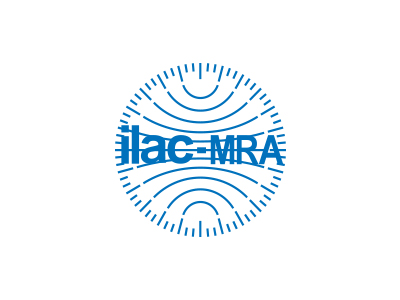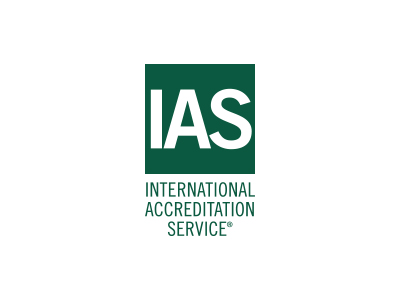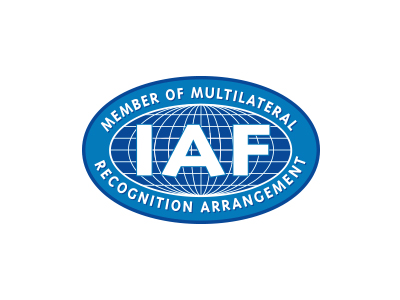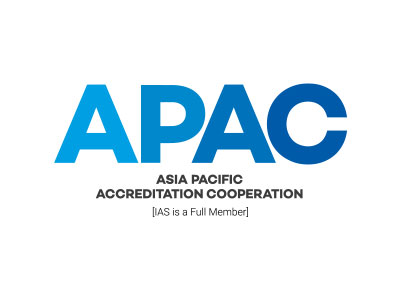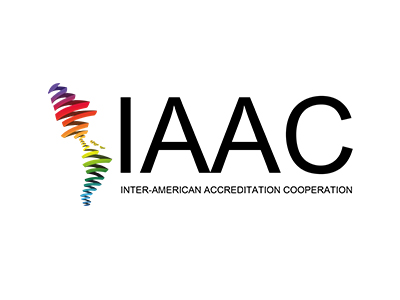TNI Webinars
Learn from the IAS 90 minute TNI Webinars.
COURSE OBJECTIVES
TNI is a non-profit organization dedicated to providing national standards of accreditation to allow environmental laboratories a set of regulations to produce data of known quality. The 2016 TNI Standard is based upon ISO/IEC 17025:2005 with additional requirements specific to environmental testing laboratories.
International Accreditation Service (IAS) Inc is recognised by TNI for accreditation against the TNI standard. See the list published on the NELAC website.
The objective of each of these numbered webinars is to:
- Provide a review of the recently implemented 2016 version of the standard used to accredit environmental laboratories.
- Learn about the upcoming ELAP regulations and what it means for an environmental laboratory.
- provide laboratories with specific information to assist in preparing for on-site assessments.
- Discuss the various types of QC measurements, how to prepare each type, explain the rationale behind the frequency of analysis, and the implication of the results concerning the batch, system, or method.
TARGET ORGANIZATIONS
This Training Course applies to environmental laboratories seeking recognition of environmental testing under the 2016 TNI Standard and those transitioning from other state-specific accreditation programs.
COURSE PARTICIPANTS
For all laboratory staff who
- Manage the laboratory
- Manage in the technical operation of the laboratory
- Operate and maintain the laboratory quality system
- Manage laboratory programs
WEBINAR 1 - 2016 TNI STANDARD FOR TESTING LABORATORIES.
This webinar is offered for free to all testing laboratories participating in the TNI program for environmental laboratories. It is published here.
The objective of this training is to provide California laboratories an overview of the steps that should be taken to become ELAP/2016 TNI Standard compliant. It will highlight the process of transitioning from the previous standard and regulations to fully implement the new requirements. This one hour training course is primarily suited for laboratory managers, quality assurance officers, technical managers, and program managers.
Course Participants:
For all laboratory staff who
- Manage the laboratory
- Manage in the technical operation of the laboratory
- Operate and maintain the laboratory quality system
- Manage laboratory programs
Outline:
Introduction
Review of new requirements
- Quality systems
- Technical
- Proficiency testing
Implementation Process
- First steps
- Develop transition plan
- Training
- Update documents
WEBINAR 2 - CALIFORNIA ELAP REGULATIONS
Learn about the upcoming ELAP regulations and what it means for your laboratory. This webinar is offered for free to all testing laboratories participating in the TNI program for environmental laboratories. It is published here.
Webinar Objectives
The California Environmental Laboratory Accreditation Program (ELAP) is in the process of updating its regulations for accrediting environmental laboratories. The objective of this course is to provide a review of the changes to the requirements to assist laboratories to achieve compliance with the new measures.
Target Organizations
This Training Course applies to environmental laboratories seeking recognition of environmental testing under ELAP and those in need of understanding the challenges of updating their quality systems to become compliant under the 2016 TNI Standard.
Target Course Participants
For all laboratory staff who
- Manage the laboratory
- Manage in the technical operation of the laboratory
- Operate and maintain the laboratory quality system
- Manage laboratory programs
Webinar Training Process
This 1-hour Training Course provides information on how to prepare for an ELAP assessment by a recognised accreditation body. The updated regulations emphasize a more robust quality management system and new technical requirements including calibration aspects, staff qualifications, and document control. We will discuss options for quality system requirements and common assessment findings.
The course contains reference to Standard Interpretations, Implementation Guidance, and Guidance Documents published by TNI and ELAP.
Overview of Webinar on California Regulations
Introduction
Review of the newly adopted ELAP requirements
- Quality system requirements
- Technical aspects
- MDLs
- Corrective actions
- Internal audit/Management reviews
- Options for various types of laboratories
- Common assessment findings
WEBINAR 3 - PREPARING FOR THE ELAP ASSESSMENT.
Learn the specific information to assist in preparing for on-site assessments. Focus on areas that have historically been challenges for laboratories to be in compliance. This one hour training course is primarily suited for laboratory managers, quality assurance officers, technical managers, and program managers. It is published here.
Outline:
Introduction
Overview of the new MDL procedure from the EPA 2017 MUR
- Definitions
- Data acquisition
- Calculations/verifications
Common assessment findings
- Quality systems
- Technical requirements
- Documentation
- Record keeping
- Traceability
WEBINAR 4 - QC IN THE ELAP LABORATORY
When asked, many analysts say they run QC samples because they are “supposed to.” Many test methods require specific QC samples to be run without providing a corresponding explanation for doing so. This webinar will discuss the various types of QC measurements, how to prepare each type, explain the rationale behind the frequency of analysis, and the implication of the results concerning the batch, system, or method.
Outline:
- Introduction
- Review of QC sample types
- Proper preparation and analysis
- Impact on data quality
- Use of QC in method validation
WEBINAR 5 - TECHNICAL CRITERIA FOR CHEMISTRY METHODS AND EQUIPMENT
This webinar will discuss concepts related to spectrophotometric, titration, specific ion electrode, gravimetric, gas chromatography, and others. Principles of techniques, chemistry involved, and detection will be discussed. Aspects of drinking water testing as specified in 40 CFR Part 141 will be reviewed along with recent changes to the 2016 TNI Standard.
Outline:
- Introduction
- Understanding various analytical technologies
- Types of determinative separations and detection
- Useful laboratory techniques
- Requirements of performing drinking water methods
- Update on changes to the Chemistry Module in the 2016 TNI Standard
WEBINAR 6 - TECHNICAL CRITERIA FOR MICROBIOLOGY METHODS AND EQUIPMENT
This webinar will discuss concepts and requirements related to microbiology methods including presence/absence, enumeration methods, membrane filtration, and others. Principles of quality control, techniques, and program requirements will be discussed. Aspects of drinking water requirements as specified in 40 CFR Part 141 will be reviewed along with recent changes to the 2016 TNI Standard.
Outline:
- Introduction
- Understanding various microbiological methods
- EPA/program requirements of performing drinking water microbiological methods
- Useful laboratory techniques
- Update on changes to the Microbiology Module in the 2016 TNI Standard
WEBINAR 7 - GUIDELINES FOR METHOD SELECTION AND VALIDATION/VERIFICATION
This webinar will review the requirements and techniques laboratories and data users can use to effectively conform to the standards and regulations concerning method selection and validation/verification. Participants will learn the theory and practice related to selecting and validating test methods to generate data of known and documented quality. The requirements in the standards and regulations can be vague and confusing to laboratory management and staff. Various options for compliance will be provided to assist in providing legally defensible data in a way that works for the participants’ lab and their customers.
Outline:
- Principles of method selection and validation/verification
- Validation/verification of reference methods, validation of non-standard methods, and validation of lab-modified methods
- Relevance of validation/verification to the measurement process
- Requirements for legally defensible data
WEBINAR 8 - METROLOGICAL TRACEABILITY IN THE ELAP LAB
This webinar will explain various concepts of measurement traceability including requirements for reference standards and materials, instrument calibration, support equipment verification, correction factors, and related concepts. Laboratory personnel will learn how to properly document traceability procedures and accurately record basic measurements. Changes to the 2016 TNI Standard and concepts from ISO/IEC 17025:2017 will be highlighted.
Outline:
- Introduction
- Terminology & definitions
- Instrument calibration
- Support equipment verification
- Documented procedures
- Proper record keeping
WEBINAR 9 - STAFF TRAINING AND COMPETENCE IN THE ELAP LAB
This webinar will explain various methods of ensuring that ELAP staff are trained for the functions they perform and that the lab has policies and procedures related to their selection, training, qualification and continuing competence. Laboratory personnel will learn how to properly document training and qualification records. Changes to the 2016 TNI Standard and concepts from ISO/IEC 17025:2017 will be highlighted.
Outline:
- Understand management and staff responsibilities
- Learn training needs and record keeping
- How to establish procedures for Demonstrations of Capability
- Learn the benefits of establishing training goals
- Understand Technical Manager qualifications
- How to adequately document job descriptions
WEBINAR 10 - CREATING AND INTEGRATING THE ELAP LABORATORY QUALITY MANUAL
Establishing and maintaining a quality manual is a requirement of the 2016 TNI Standard. However, effective laboratories invest the required resources to plan and implement a quality manual to improve quality and maximize operational efficiencies. What makes a practical and useful quality manual? What are the requirements? What should be included, or not included? What can or should be in a separate SOP? What are some ideas for my type of laboratory? These questions will be addressed in this webinar in addition to other ideas and tools for creating a quality manual that works for your laboratory.
Outline:
- Introduction
- Definitions and terminology
- Requirements for quality manuals in the TNI Standard
- Writing a quality manual that reflects actual practice
- Ideas and tools for writing a quality manual
WEBINAR 11 - EFFECTIVE INTERNAL AUDITS AND MANAGEMENT REVIEWS
Internal audits and management reviews are two of the most effective ways to improve laboratory quality. This webinar will describe the requirements and responsibilities of laboratories to meet current regulations. We will offer suggestions and tools for a variety of laboratories to best meet these requirements. We will discuss proper documentation and related records to improve data quality and increase internal laboratory communication. This webinar will be useful to laboratory management, technical staff, supervisors, and QA managers.
Outline:
- Introduction
- The theory behind internal audits and management reviews
- Internal audit requirements and best practices
- Integrating internal audit results with effective corrective actions
- Benefits of internal audits
- Management review requirements and best practices
- How to encourage management involvement
- Tools and options for effective management reviews
- Document and record requirements
WEBINAR 12 - IMPLEMENTING EFFECTIVE CORRECTIVE ACTIONS
Despite a laboratory’s best efforts, deviations from established procedures are inevitable. Resolving deviations quickly and effectively is the cornerstone of continuous improvement. The corrective action process, including proper root cause analysis, allows for improved laboratory operations, increased profitability, and results in a more robust management system. This webinar presents tools for good root cause analysis and various processes to conduct corrective actions. Different sources of findings will be reviewed including “not acceptable” proficiency test results, internal audits, external audits, and technical non-conformances. This webinar is recommended for laboratory management, quality assurance personnel, and data users.
Outline:
- Introduction
- The corrective action process
- Root cause analysis
- Closing corrective actions
- Effective monitoring
- Repeat findings
WEBINAR 13 - IMPLEMENTING A ROBUST DATA INTEGRITY PROGRAM IN AN ELAP LAB
Generating good data requires a quality management system built upon a strong data integrity program. The TNI Standard contains a number of data integrity requirements to help ensure data is generated with a high level of integrity. This webinar will provide an understanding of these requirements and offer implementation ideas and tools to establish a proactive approach to data integrity. Obstacles to implementation and system vulnerabilities will be discussed.
Outline:
- Introduction
- TNI Standard requirements
- Components of an effective data integrity program
- Tools for implementation
- Detection and prevention
WEBINAR 14 - COMMON ELAP LABORATORY ASSESSMENT FINDINGS
Confessions of an ELAP Laboratory Assessor
All accredited environmental laboratories have an upcoming assessment. This webinar will outline the philosophy, guidelines, and most common findings of a laboratory assessment. Laboratories will gain insight into the assessment process to help achieve their goal of continual improvement. This webinar will offer the perspective of an assessor in reviewing the main areas of laboratory deficiencies. This is intended for laboratory management, quality assurance personnel, and laboratory analysts.
REGISTER
Additional webinar and login details will be sent once registration is complete.
Overview of Syllabus
Outline:
- Purpose of quality systems
- Various challenges of commercial and captive laboratories
- Most common assessment findings
- Effective solutions to common areas of concern
WEBINAR 15 - QUALITY MANAGEMENT SYSTEM IMPLEMENTATION FOR SMALL LABORATORIES
Small laboratories often feel overwhelmed by the requirements set forth in the 2016 TNI Standard and other regulations. A full-time Quality Manager is not always required (or possible). The objective of this training is to provide small laboratories with an understanding of what is required and to assist with ideas and tools to comply. Remember, standards and regulations state what to do, not how to do it.
Outline:
- Introduction
- What is required to meet the 2016 TNI Standard?
Learn the Standard
Resources
Tools
Make a plan - The assessment process
Preparation
Improvement
Post-assessment options - How quality affects data generation
WEBINAR 16 - DOCUMENT CONTROL IN ELAP LABS
Implementing Effective Document Control Procedure
Document control is the most visible component of the quality management system. Correctly managing document control makes it easier to implement the quality system and yields benefits throughout all laboratory operations. This webinar will discuss various ways laboratories can easily implement the document control requirements of the 2016 TNI Standard. We will discuss the philosophy and provide tools for writing, organizing and maintaining documents for the quality system, administrative procedures, and technical processes.
Outline:
Introduction
Document control requirements of the 2016 TNI Standard
- Definitions
- Requirements
Different ways to comply with the requirements
Types of documents
Writing various types of documents
Common pitfalls
WEBINAR 17 - ENSURING EFFECTIVE PROCEDURES IN AN ELAP LAB RELATED TO SUPPLIERS AND SUBCONTRACTORS
Ensuring Effective Procedures in an ELAP Lab Related to Suppliers and Subcontractors
Synopsis:
The quality of supplies used by a laboratory has a direct effect on data quality. The 2016 TNI Standard includes requirements laboratories must conform to as part of the quality management system. This webinar will focus on the approval and continuing evaluations of suppliers and the requirements pertaining to subcontracting regulatory tests. This webinar will be useful to laboratory management, supervisors, and quality assurance staff.
Outline:
Introduction
Supplier requirements contained in the 2016 TNI Standard
- Definitions
- Requirements
Different ways to comply with the approval and evaluation of suppliers
Procedures related to subcontracting
Necessary documents and records
WEBINAR 18 -MANAGEMENT REQUIREMENTS FOR ELAP LABORATORIES
Management Requirements for ELAP Laboratories
Synopsis:
TThe 2016 TNI Standard requires specific management items all laboratories must address. This webinar will focus on management policies related to communication of customers and staff, laboratory organization, and non-conforming work. Examples of various management types will be provided. This webinar will be useful to laboratory management, supervisors, and quality assurance staff.
Outline:
- Definitions
- Identifying required management policies
- Writing management procedures
- Mechanisms of communication
- Examples of management types
WEBINAR 19 -EQUIPMENT REQUIREMENTS FOR ELAP LABORATORIES
Synopsis:
Laboratories must rely on equipment to obtain quality data and increase efficiencies of operation. This webinar will focus on the proper set up, use, and record keeping of laboratory instruments and support equipment. We will discuss calibration, verification, and traceability of equipment to increase confidence in the data. We will explain the differences between reference standards and reference materials and the associated requirements. This webinar will be useful to laboratory management, supervisors, and quality assurance staff.
Outline:
- Introduction
- Proper equipment setup and calibration
- Requirements for traceability and record keeping
- Reference materials and reference standards
- Maintenance programs
WEBINAR 20-SAMPLE INTEGRITY IN AN ELAP LABS
Synopsis:
Sample integrity is arguably the most important aspect of data quality. Laboratories need established, well-written sample integrity procedures to enhance laboratory operations and avoid non-conformances. This webinar will cover requirements for sample acceptance, chain-of-custody, traceability, and recordkeeping of samples from receipt to analysis to disposal. This webinar is suited to laboratory management, quality assurance personnel, and analysts.
Outline:
- Introduction
- Sample receipt/acceptance
- Sample traceability
- Recordkeeping
- Handling departures
WEBINAR 21 - HOW TO WRITE AN EFFECTIVE RESPONSE TO AN ELAP ASSESSMENT REPORT
Synopsis:
Laboratories must respond to assessment reports with an effective corrective action plan. The plan has to be accepted for the assessment process to conclude. This can be a daunting task for many labs. This webinar will discuss the requirements of a corrective action plan including root cause analysis, required training, document revisions, and objective evidence. This webinar will be helpful to quality systems, laboratory operations, and technical personnel.
Outline:
- Introduction
- Overview of the assessment process
- Review of the components of an assessment report
- Assessment report instructions
- Requirements of the corrective action plan response
- Tools and tips to create an acceptable response
WEBINAR 22- WEBINAR 22-CUSTOMER SERVICE REQUIREMENTS IN AN ELAP LAB
Synopsis:
Customer service consists of many factors including soliciting feedback, understanding their needs, reporting results consistently, dealing with complaints, and providing explanation of results. The first step is to understand who the customer is; commercial and municipal labs have myriad differences. Reporting requirements vary depending on the relationship and requirements. This webinar will be helpful to Customer Service, Project Managers, Laboratory Management, and technical personnel.
Outline:
- Introduction
- Definitions of customer
- TNI requirements for requests, tenders, and contracts
- Policies and procedures for method selection and customer complaints
- Report qualifiers
- Subcontracting
WEBINAR 23 - METHOD DETECTION LIMITS IN AN ELAP LAB
Synopsis:
This webinar will review method detection limit (MDL) procedures and rules and examples of how to implement them in your laboratory. We will discuss EPA and TNI regulations concerning MDLs along with a discussion of detection limits (DLs), practical quantitation limits (PQLs), reporting limits (RLs), limits of quantitation (LOQs). This webinar is intended for laboratory management, supervisors, and analysts.
Outline:
- Introduction
- Definitions – MDL, PQL, RL, DL, LOQ
How to determine a MDL - Estimate initial
- Determine initial
- Ongoing data collection
- Ongoing verification
Low level spike and blank calculations
Ongoing verifications
Reporting limits
WEBINAR 24 - POLICIES AND PROCEDURES REQUIRED IN AN ELAP LAB
Synopsis:
The 2016 TNI Standard includes specific policies, procedures, systems, etc. This webinar will
discuss the required policies, procedures (written and unwritten), and language to be included
in the quality management system. We will also discuss various ways a laboratory can conform
to the Standard. This webinar is suitable for laboratory management, quality assurance
personnel, and analysts.
Outline:
- Introduction
- Define policies, systems, procedures, and instructions
- Types of documents
- Control of documents
- Review the revision of policies and procedures
- Ensure all staff are trained and following the established policies and procedures
WEBINAR 25 - TNI Standard Interpretations for a CA ELAP Laboratory
Synopsis:
The California State Water Resources Board has approved the Environmental Laboratory Accreditation Program (ELAP) regulations for accrediting environmental laboratories. This free 90-minute live webinar, the 25th in a series from the International Accreditation Service (IAS), will discuss Standard Interpretation Requests (SIRs) pertaining to the 2016 TNI Standard.
The 2016 TNI Standard contains requirements that laboratories must comply with. Sometimes, the language can be open to interpretation. Stakeholders often submit Standard Interpretation Requests (SIRs) to TNI for clarification. This webinar will review the most helpful, important, and applicable SIRs to assist laboratories to better understand the requirements and various ways to adhere to the Standard. This webinar will be useful to laboratory management, supervisors, and quality assurance staff.
WEBINAR 26 - What CA ELAP Laboratories Need to Know About Changes to SM 9020
Synopsis:
All laboratories performing microbiological testing under Standard Methods must perform a variety of quality control tasks. This webinar will describe the changes made in SM 9020 (and 9030) from the 22nd Edition to the 24th Edition. We will provide information related to requirements surrounding thermometers, balances, autoclaves, incubators, media, meters, etc. including changes to verifications and record keeping. This is intended for laboratory management, quality assurance personnel, and laboratory analysts working with microbiological tests.
Outline:
- Background
- Changes throughout the various editions of Standard Methods pertaining to:
-
- Thermometers and refrigerators
- Autoclaves and incubators
- Balances, weights, and meters
- Water quality, sterility, and media
WEBINAR 27 - Method Modifications for a CA ELAP Laboratory
Synopsis:
This training covers the essential procedures for making method modifications and performing method validations in an environmental testing laboratory. Participants will learn when a method can be modified without regulatory approval, how to document changes, and how to perform validations to demonstrate accuracy, precision, and sensitivity. The webinar will discuss key regulatory expectations (e.g., CA ELAP, EPA, TNI), validation study design, acceptance criteria, and required documentation. Practical examples will be provided to help laboratories ensure compliance while maintaining data integrity and defensibility.
Outline:
- Introduction to Method Modifications and Validations
- Regulatory Framework and Requirements (EPA, TNI, NELAC)
- Types of Method Modifications: Minor vs. Major
- Criteria for Acceptable Modifications Without Regulatory Approval
- Steps to Document Method Modifications Properly
- Designing a Method Validation Study: Key Parameters
- Establishing Acceptance Criteria
- Common Validation Pitfalls and How to Avoid Them
- Reporting and Recordkeeping Requirements
- Case Studies and Best Practices for Successful Implementation
REGISTRATION*
- Webinar – Regular Registration $100.00, Early Bird $75.00
- IAS 90 - Minute Webinars (FREE)
- Short Course – Regular Registration $250.00 USD, Early Bird $200.00
- Long Course – Regular Registration $350.00 USD, Early Bird $300.00
*Fees are non-refundable for cancellations; however, you may substitute another member of your staff, or attend another class offered by IAS at a later date. If IAS cancels this class for any reason, the full registration fee paid will be refunded.
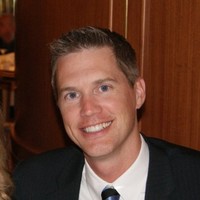 Tony Francis, PhD
Tony Francis, PhD
Dr. Francis has extensive experience in chemistry and biology. He is currently a principal with SAW Environmental (2004 to present). He was owner/operator of a large environmental laboratory in Nevada prior to becoming a full-time consultant. He performs and manages third‐party laboratory audits for several states, QA/QC consulting to individual laboratories, and provides internal audits, data integrity training, and data validation to private and governmental laboratories. Dr. Francis is a contract assessor for IAS assessing laboratories to ISO/IEC 17025 and various TNI Standards. He is a fully qualified NELAC assessor in organic and inorganic chemistry, microbiology, cryptosporidium, radiochemistry, solids, aqueous, tissue, and air. He is an EPA-approved drinking water certification officer in all areas available.
Dr. Francis performs 30-40 audits per year. He received his PhD in chemistry from the U. of Utah, 2003
